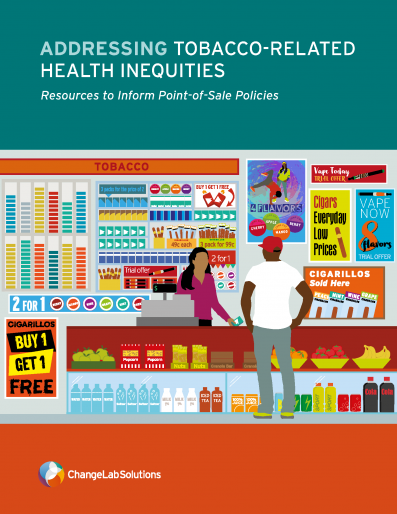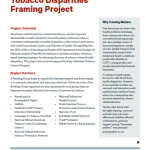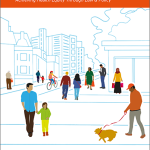Addressing Tobacco-Related Health Inequities
Resources to inform point-of-sale policies
No person should be exposed again and again to experiences that are known to be harmful, regardless of their race, ethnicity, who they are, or where they live. Yet tobacco companies use these characteristics to pressure consumers at the point of sale, employing a variety of tactics to affect where retailers are located and how tobacco products are priced, sold, and marketed.
For example, tobacco companies channel more advertising and discounts into neighborhoods with high proportions of residents who are Black or who have low income, a tactic that often coincides with a high density of tobacco retailers in these neighborhoods. Moreover, factors such as income inequality, structural discrimination, and disparities in opportunity mean that people who live in underserved communities often experience high levels of pressure related to finding a good job, taking care of their family, and securing a roof over their head and food on the table. Chronic stress combined with higher rates of tobacco exposure contribute to greater tobacco use and disproportionate health problems in underserved neighborhoods.
Policies that limit exposure to tobacco provide critical protections against tobacco-related harms and can help address the fundamental drivers of health inequity. ChangeLab Solutions has created a new resource — Addressing Tobacco-Related Health Inequities: Resources to Inform Point-of-Sale Policies — to help residents, advocates, and decisionmakers assess inequities in the tobacco retail environment, identify policy solutions, and make health equity a fundamental part of policy development and implementation. Foregrounding equity at each step of the policy process helps ensure that any policy change is grounded in a deep understanding of the health priorities, community goals, and lived experiences of residents.
This resource is designed to be used in conjunction with our Point of Sale Playbook, which outlines policy options for regulating how and where tobacco products are marketed and sold.






